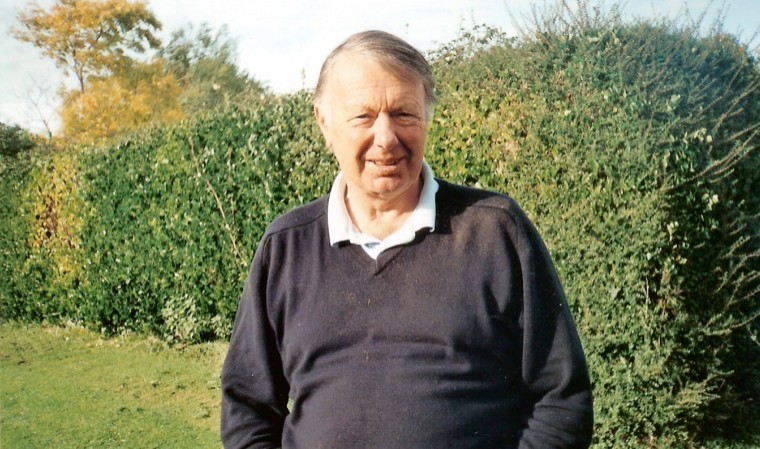This past year has not been one to bring much pleasure for several reasons, although it has perhaps brought closer the end of almost two years of the pandemic that has wreaked such havoc and worry across the whole world.
On the farms we have now accepted life without cattle, or as much as we ever will. Cropping was minimal on the home farm. Laureate barley, mainly for thousands of local pigeons. On the hill farm we have been able to watch the development of the tenant’s vineyard, seen the trellis work completed, the excellent deer fencing erected to keep the roe and fallow deer away from the tasty vines; the recent growth has been pretty encouraging. Another two seasons and they should begin to see the promise of the first wine. There is much work involved there, summer and autumn. Mainly weed control, grass cutting, but as the vines grow there will be increasing calls for spraying to control fungal diseases. It’s presently all down to Emma.
The rest of that farm is on annual let to neighbours who grow mainly cereals and run sheep. They are excellent cereal growers who luckily get a lot more pleasure out of producing these crops than I ever have or did. After a dry start this year they also grew a fine maize crop which will have benefitted from the high fertility the old herd put into the land for so many years.
The farm up along the Arun has also been let to a neighbour who has access to a substantial extraction licence, something which benefits both of us, in as much as he is then able to sublet it, short term, for vegetable growing. This is the land which, as previously reported, has been seriously affected by ongoing neglect of the river banks, again by the Environment Agency (EA), something which, in turn, has restricted its use to spring cropping due to annual winter flooding and which has been one of our main headaches for the past few years. I hope the problems are now a little closer to being resolved and the situation improves.
As I reported last month, the neglect by the EA has also piled more pressure on us and our neighbouring farmers here on this floodplain between Littlehampton and Bognor, where our whole drainage system has suffered so many years of inattention by the agency. This situation will continue until the authorities relearn the basic rules of drainage and then help land owners and farmers apply them. A common opinion of the EA, amongst farmers, is that they are overpaid and useless.
Turning now to another big problem, farm labour, which seems to be an increasing issue both here in Sussex and nationwide. Certainly the work is not so hard these days, although it can mean long hours on big complex machinery. Neither is the financial reward poor; it’s just that the work ethic doesn’t appear to be present as it was in the past. We have always relied on cattlemen, herdsmen and stockmen and have had some of the most reliable staff one could have wished for, although over the past 10 years the ‘stickability’ of the herdsmen supplied by contractors diminished considerably. Although we were not let down critically, it was hard work breaking staff in on almost an annual basis.
The one constant I have had here for the past 30 years has been our part-time calf rearer stockman, one Wally Elvin, of soccer refereeing renown, who joined me in the early nineties and has been a constantly reliable aid through illnesses, bad calvings, TB and various snow, wind and rain storms.
I think government’s abysmal record with TB, along with equally disgraceful milk prices, finally convinced all of us that there was no longer a reasonable future with cattle, and so ended my family and farm’s 125-year history as dairy farmers. Now Wally comes in four days a week to help keep things together, hedge trimming, tidying, whatever is needed and keeping me in order. He’s always cheerful, and despite slowing down a bit Wally seems determined not to retire until I do… I guess we will both be buried where we fall with our boots on!
One thing he and I will need to do in the coming months is cut back our shelterbelts around the home farm. Planted and maintained for the animals as shelter on hot days, these now really need a quite severe pruning to allow the contractor’s huge machines clear passage. The biggest problem has been opening up old gateways or removing them altogether, to allow access.
All the internal kissing gates, too, have been removed, although we still retain all padlocks and chains on external gates. We also use removable bollards, barbed wire and long-lasting paint as a deterrent for vehicles and trespassing children who damage everything they can get their feet or hands on. Roofing has been their favourite this last year, and I have been trying to persuade the local police that someone is going to end up dead on the concrete below if they don’t pretend to be interested and put in the odd appearance.
Finally… I had a request for an interview from the BBC’s Jeremy Vine shortly after that alpaca was put down, but was not available. We agreed the photos of it being taken were open to misrepresentation, only because of the appalling behaviour of the over-emotional protestors who appeared at the owner’s behest and the numbers of police needed to control them. Dairy farmers face that dilemma all the time.




